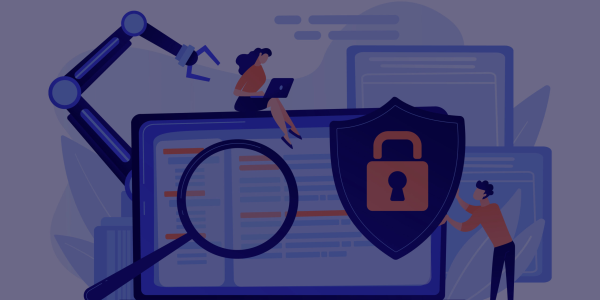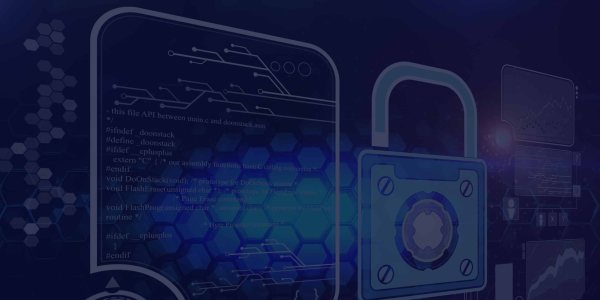Remote employment has been a familiar practice for many companies for a long time, but the COVID-19 pandemic has accelerated the trend as businesses were compelled to adopt remote work to ensure their employees' safety. While this provided a potential cost-saving solution, the shift to remote work has also opened the door to cybersecurity issues. The pandemic years have witnessed an unprecedented surge in ransomware attacks, malware infections, and notable corporate entities facing the consequences of data breaches. However, there are tried-and-tested methods to prevent such unpleasant events from happening, provided that we implement them in a timely manner. In this blog post, we will take a closer look at how we can achieve that.
T-Mobile's Recent Cyberattacks and Lessons Learned for Businesses
T-Mobile, a mobile telecommunications service provider with a vast customer base in the Czech Republic, Poland, and the United States, suffered a cyberattack in August 2021. This attack exposed the personal information of over 75 million customers, resulting in the company agreeing to a USD 350 million settlement in a class action lawsuit filed against it in the U.S. The deadline for submitting a claim for a portion of the payout was January 23, 2023. However, just days before the deadline, on January 19, 2023, T-Mobile reported yet another cyberattack that affected at least 37 million current customers.
What is interesting about T-Mobile's case is that it is not the only company to have experienced a significant and costly breach. In 2017, Equifax, a credit bureau company, also experienced a data breach that affected 147 million individuals, resulting in the company agreeing to pay up to USD 700 million in a settlement with the Federal Trade Commission in 2019. These incidents highlight the growing threat of cyberattacks and the need for companies to prioritize data security, especially in the age of remote work.
Importance of Responsible Data Management for Companies
The USD 350 million settlement resulting from the T-Mobile data breach serves as a warning to businesses that they must safeguard their customers' data and be mindful of possible risks, especially given the significant rise in remote work in recent years. It is evident that one of the most notable consequences of remote work for companies is an increased susceptibility to data breaches. As businesses have moved their operations online, cybercriminals have capitalized on their weak security and sometimes poor employee habits. So, what lessons can we learn from T-Mobile's incident?
First and foremost, it underscores the importance of companies acting responsibly and with care when managing their customers' data. It is imperative for organizations to ensure that any personal data they collect is well-protected against theft or misuse to the best of their ability. This entails implementing appropriate technical measures, such as encryption, firewalls, and other forms of data security, to safeguard the data.
Moreover, companies also face the risk of significant damage to their reputation due to data breaches. In fact, the potential harm to an organization's reputation or loss of consumer confidence can be a more potent motivator for investing in cybersecurity than the financial impact of a penalty or fine. This risk can serve as an effective incentive for companies to prioritize fundamental data security measures such as security patching, compliance, and awareness training, which can bolster preventative strategies.
Mitigating Data Security Risks in Remote Work Environments
Forewarned is forearmed. Having knowledge of potential data security risks is essential for remote workers and companies to take the necessary measures to avoid them. Here are some of the most common issues that workplaces face when working remotely.
- 1) Phishing and scam emails are becoming increasingly prevalent, and employees are regularly falling victim to them. Scammers send emails that appear to be legitimate, and many people fall for them by clicking on links or responding to them, resulting in the disclosure of sensitive information or the installation of malicious malware that can cause serious disruption to business operations.
- 2) Using an unsecured network or personal devices that lack proper security measures like VPN can compromise any data security measures implemented by the company. It can become a monumental task to eradicate this practice.
- 3) Shadow IT is another issue that arises when remote employees attempt to resolve their computer and network issues without readily available expert technical support. This practice can lead to significant security risks and unauthorized access to sensitive information.
- 4) Weak passwords are another potential threat to company security. Employees who choose weak or easily guessable passwords for their accounts and applications, even with other security measures like VPNs in place, can jeopardize the company's security. Using the same password for all accounts is also dangerous because if a cybercriminal hacks one of them, they can potentially gain access to numerous other accounts linked to the same password.
Mitigating the Risk of Human Error
According to a study by IBM, a significant number of data breaches were caused by errors that resulted from employees lacking the necessary skills or knowledge. This indicates that companies face a challenging task in addressing human errors.
One effective way to mitigate this risk is to provide data security training to employees to ensure that they are equipped with the proper methods for handling company information. Rainmaker can help by offering regular compliance training to your staff, whether they work remotely or on-site, to provide them with the necessary tools and skills to operate securely and identify potential security threats. Please contact us for more information.
Author: Sagnik Mukherjee, Legal Associate, Rainmaker Directions and Contributions: Akanksha Arora, AVP-Legal, Rainmaker
Disclaimer : No information contained in this website may be reproduced, transmitted, or copied (other than for the purposes of fair dealing, as defined in the Copyright Act, 1957) without the express written permission of Rainmaker Online Training Solutions Pvt. Ltd.











